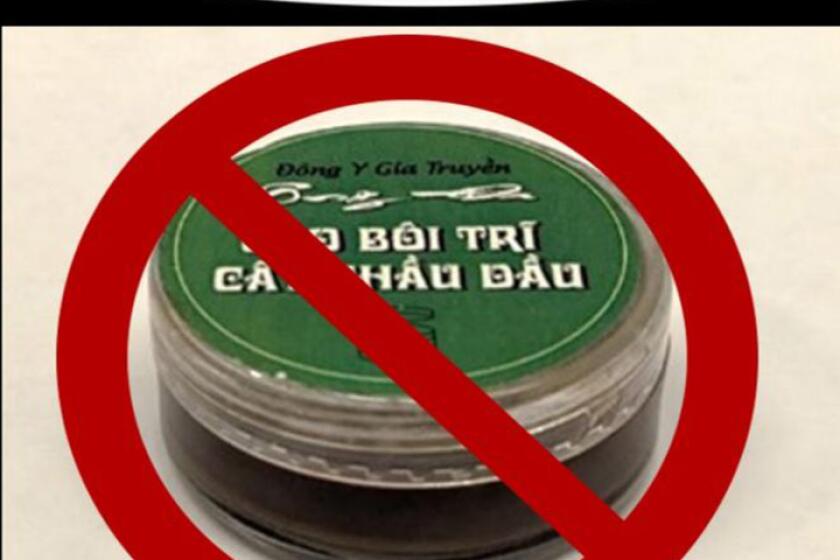Final Nixon tapes show a different side of former president
They were great antagonists of the Cold War, the avowedly Red-hating American president and the world’s most powerful Communist.
Yet when Richard Nixon hosted Soviet leader Leonid Brezhnev for a summit in June 1973, their private exchanges had the casual, meandering comity of old friends.
Meeting his Russian counterpart privately in the Oval Office, with only a translator accompanying them, Nixon said the world’s safety hinged on their mutual trust.
“Mr. Brezhnev and I have the key, and I think that our personal relationship will unlock the door,” Nixon said. He did not tell Brezhnev that they were being tape-recorded.
The exchange, the only known recording of a superpower summit meeting, is part of the last 340 hours of Nixon’s secret White House tapes -- the final major portion of a singular informational trove in presidential history.
In all, the 17-year-long release of Nixon’s tapes represent some 3,700 hours of surreptitiously recorded conversations in the White House and at Camp David. They reveal a president who is at times reflective, profane, self-pitying and intent on destroying political rivals such as Ted Kennedy.
But the final tapes show a different side of Nixon: An outspoken cold warrior who was trying to reduce tensions between the U.S. and the Communist world.
The 94 new tapes, released Wednesday by the Richard Nixon Presidential Library and Museum in Yorba Linda, reflect Nixon’s conversations from April 9 to July 12, 1973, shortly after which his secret taping system was exposed and discontinued.
During the period reflected in the new tapes, Nixon was fighting to keep the Watergate scandal from destroying his presidency. He had talks with world leaders from Willy Brandt of Germany to Haile Selassie of Ethiopia. His concerns ranged from the Vietnam peace settlement to the ongoing standoff in the town of Wounded Knee, S.D. The week-long summit with Brezhnev followed Nixon’s visit to Moscow the year before. In their Oval Office meeting on June 18, 1973, Brezhnev invoked Russian folklore and declared it a good omen that it had been raining in Moscow when he left. And it was “a double, extra good omen” that it was also raining in Washington.
Nixon seemed amused by Brezhnev’s cigarette box, which had a special timer that only allowed him to retrieve a cigarette at intervals. “That’s a way to discipline yourself,” Nixon said.
Apologetically, Brezhnev said he had hoped to bring some of his family to America with him, but his wife had taken ill and his grandson had university entrance exams. He said he hoped for a “gentleman’s agreement” on key issues and to cultivate a “real, lasting relationship between our two countries.”
Brezhnev remarked on the size and power of both the United States and the Soviet Union and said he hoped to deliver a speech in which he would “crush” the theory that the two superpowers were inevitably antagonistic.
“Are we to blame for being big? Are we to blame for being strong?” Brezhnev said. “Neither the United States nor the Soviet Union can turn themselves into a Luxembourg where the entire army is made up of 78 policemen.”
Brezhnev said he looked forward to meeting Nixon soon at La Casa Pacifica, Nixon’s San Clemente home, an invitation the Russian leader had initially resisted. “I like to hear the sound of the sea,” Brezhnev said.
“This is an amazing conversation,” said Luke Nichter, an associate professor at Texas A&M University who studies Nixon’s secret tapes.
“They’re talking about ending the threat of nuclear war in the world. What strikes me is how much they agree on the need for the biggest nations to get along with each other.”
Timothy Naftali, former director of the Nixon Library now a fellow at the New America Foundation, a D.C. think tank, said the conversation with Brezhnev reflected “a friendly banality, rather than a restatement of Cold War rhetoric.”
Though Nixon had become a hero to the conservative right in the 1940s and 1950s as a fierce anti-Communist, the right had criticized him harshly for his visit to communist China in early 1972. “By the early ‘70s, he is looking for ways to reduce international tension,” Naftali said.
The new tapes reflect Nixon’s thinking on China a year after his visit, with his understanding that an aging Mao Zedong would not be in power much longer.
In a May 3, 1973, meeting, Nixon asked veteran diplomat David K.E. Bruce to infiltrate the Chinese social world and evaluate up-and-coming leaders, saying he believed “the Chinese-American relationship can be the great linchpin of peace in the world.”
Nixon said he saw the Chinese as potentially “the ablest people in the world.” He cautioned his diplomat that the Chinese were “very subtle,” explaining, “They’re not like the Russians, who of course slobber at flattery and all that sort of thing.”
He instructed Bruce to report to him through back channels, avoiding the State Department and its feared propensity to leak.
“I’m supposed to be the No. 1 Red-baiter in the country,” Nixon said. “I have earned that reputation for what you know very well. Had we just continued the policy of just a silent confrontation and almost non-communication with the PRC (People’s Republic of China), … in the end we would reap a nuclear war. No question.”
On April 30, 1973, Nixon spoke by phone to top aide H.R. Haldeman, who along with aid John Ehrlichman had just been forced to resign by the Watergate scandal. Both would be convicted of conspiracy and obstruction of justice.
“Hope I didn’t let you down,” Nixon told Haldeman, adding: “God damn it, I’m never gonna discuss this son of a bitch Watergate thing again. Never, never, never, never.”
He said: “You’re a strong man, goddamn it. And I love you. And I, I love John and all the rest and by God, keep the faith.”
The day after, Nixon tells congressman Gerald Ford that firing his aides was “the most painful thing I’ve ever done,” adding: “But they had to be sacked.”
“It just made me sit there, damn near cry, because I knew the problem it was, and I think both of them have done a good job,” Ford replied. “Despite one of these, these damn critics.”
Nixon’s secret tapes helped drive him from office the following year; Ford assumed the presidency and granted him a pardon.
ALSO:
Final Nixon tapes reveal toll of Watergate, support from Reagan
L.A. County to pay $200K to jail inmate who claimed deputy abuse
Hannah Anderson’s father was not kidnapper DiMaggio, family says
Christopher.goffard@latimes.com
More to Read
Start your day right
Sign up for Essential California for news, features and recommendations from the L.A. Times and beyond in your inbox six days a week.
You may occasionally receive promotional content from the Los Angeles Times.








